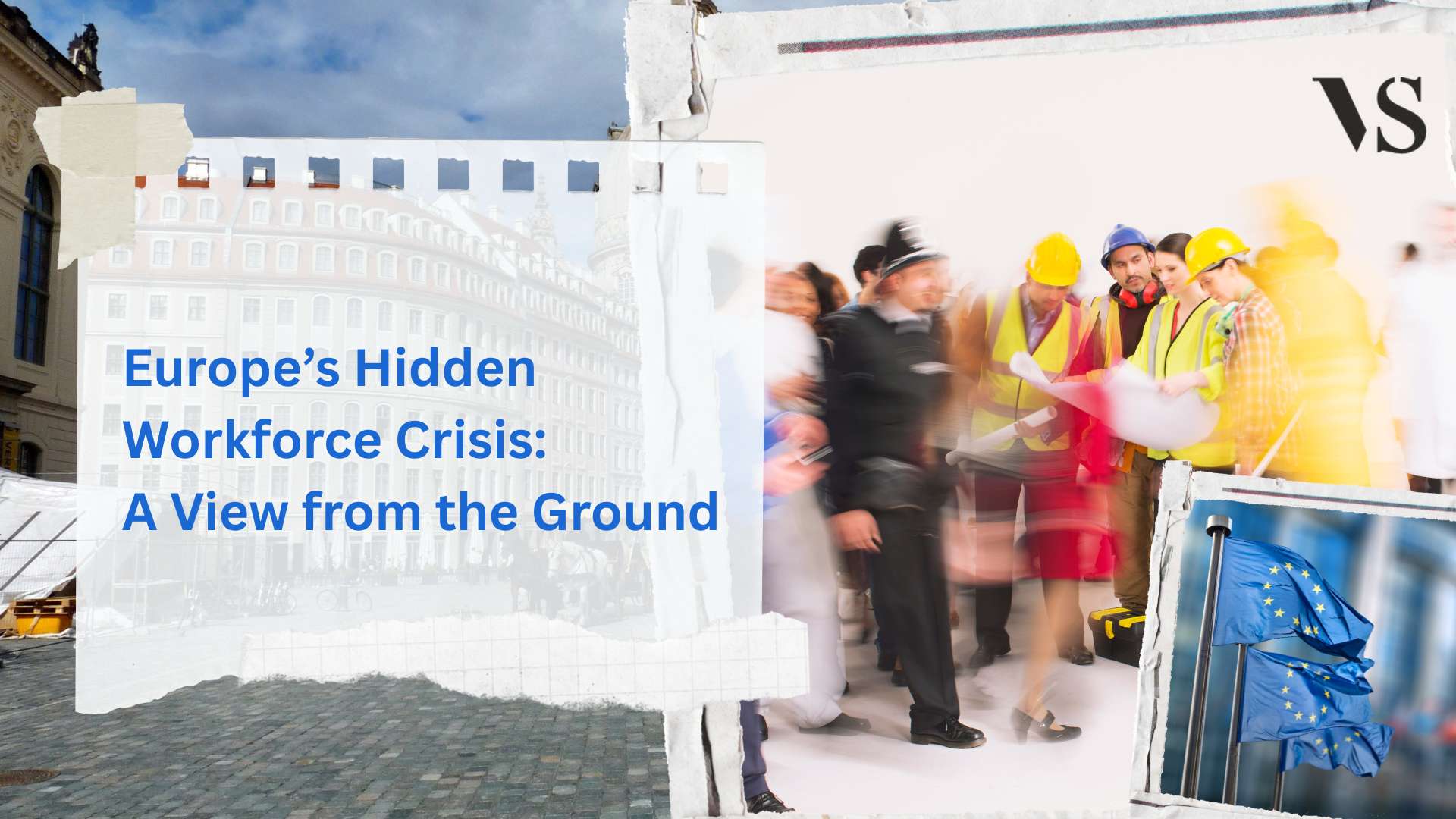Weekly Journal Details
Europe’s Hidden Workforce Crisis: A View from the Ground
April 30, 2025
By Puja Saluja, CEO and Founder – Vasper Staffing
Share on LinkedIn
The Unspoken Bottleneck
In my recent visits across Europe — from industrial parks in Poland to logistics warehouses outside Vienna — I’ve encountered a recurring concern:
We have the contracts. We have the infrastructure. But we don’t have the manpower.”
And it’s not a passing issue. It’s a long-term structural problem that threatens the momentum of Europe’s economic revival across sectors like construction, shipping, and transportation.
A Snapshot of the Crisis
Here’s what the data tells us:
🧱 Construction Shortage: The EU will require 1.6 million additional construction workers by 2030 to meet goals for housing, green infrastructure, and renovation.
🚛 Driver Shortage: There is currently a shortfall of over 500,000 truck and transport drivers across Europe, especially in Germany, the Netherlands, and Poland.
📦 Warehouse & Port Staffing: Staff turnover in warehousing and port logistics is climbing, with some regions facing 30%–40% annual churn.
These gaps are no longer isolated. They’re converging — and slowing down the very systems that keep economies running.
Why Is This Happening?
Several demographic and societal factors are driving this labour shortage:
1. Ageing Populations: Many skilled workers are retiring faster than they’re being replaced.
2. Shrinking Interest in Manual Work: Local youth are increasingly drawn to white-collar or remote jobs.
3. Accelerated Demand: The post-pandemic recovery and e-commerce boom have intensified the pressure on logistics and construction sectors.
4. Migration Restrictions: While the demand is global, labour mobility policies have not caught up yet.
Looking East: India’s Strategic Role
Countries like India are becoming essential players in addressing Europe’s workforce challenges — and not just because of their population size.
What makes India a strong partner in this shift?
🇮🇳 A young, work-ready population
🗣️ High English proficiency and cultural adaptability
⚙️ Exposure to global workplace practices and safety standards
🧳 Strong desire for long-term overseas employment through legal channels
Indian workers are already contributing significantly to infrastructure and supply chains in Europe — in both skilled and semi-skilled roles. With proper training and fair frameworks, this contribution can scale responsibly.
Reframing the Conversation
This is more than a hiring issue. It’s a labour mobility, demographic, and policy issue — one that requires collaboration between governments, employers, and ethical staffing providers.
To build a resilient workforce for Europe’s future, we need to:
✅ Develop ethical and scalable migration corridors
✅ Invest in job-specific training before deployment
✅ Ensure cultural integration and long-term engagement
✅ Reform how we define, value, and support blue-collar work
What Comes Next?
If Europe wants to keep building, trading, and moving — the human engine must be secured.
And that means asking the right questions now:
• Who will build our roads, bridges, and housing in 2030?
• Who will move goods across borders and supply shelves?
• How can we integrate international manpower without creating friction?
At Vasper Staffing, we’re committed to being part of the answer — not just by supplying workers, but by shaping conversations and systems that are built to last.
Let’s not just fill positions.
Let’s design the future of work, together.